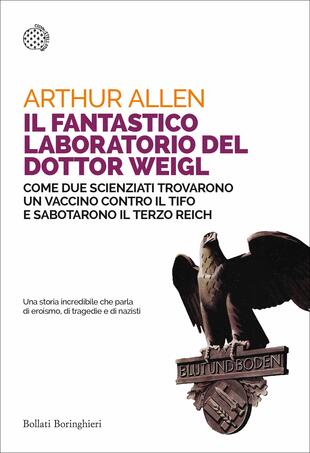

Il fantastico laboratorio del dottor Weigl
Tutti i formati dell'opera
Acquistalo
Sinossi
In questa storia tutto inizia coi pidocchi. Per noi, oggi, questi animali sono solo insetti fastidiosi, per quanto rivoltanti, ma per l’umanità intera, fino a poco tempo fa, «pidocchio» significava «tifo», e tifo significava morte certa, soprattutto per la gente povera ammassata nei quartieri più luridi delle città e per i soldati nelle trincee. Negli anni venti gli eserciti europei erano alla disperata ricerca di un vaccino, dal momento che il tifo aveva decimato le truppe di tutte le nazioni durante la prima guerra mondiale e si voleva impedire un’altra disastrosa epidemia in vista di un nuovo conflitto. Che, come sappiamo, giunse puntuale nel 1939.
Il laboratorio più avanzato sul tifo era quello di Rudolf Weigl, un brillante ed eccentrico professore polacco di Leopoli. Il suo vaccino aveva ottenuto grandi consensi negli anni venti, e quando i nazisti occuparono la città si interessarono immediatamente a quel laboratorio miracoloso, pressati com’erano da nuove epidemie di tifo tra le truppe del fronte orientale. Il laboratorio di Leopoli divenne così un luogo privilegiato, e Weigl decise di approfittarne, ospitando intellettuali e oppositori del regime, e riuscendo a far pervenire di nascosto il suo vaccino ai ghetti ebraici, rifilando nel frattempo alla Wehrmacht una versione indebolita e inefficace del siero.
Il fantastico laboratorio del dottor Weigl è il racconto incredibile di una storia straordinaria.
- ISBN: 8833928799
- Casa Editrice: Bollati Boringhieri
- Pagine: 373
- Data di uscita: 13-04-2017

